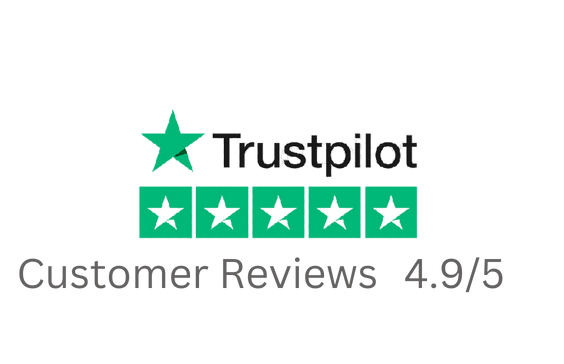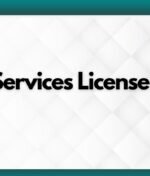
Table of Contents
- Introduction
- What is a Clinic License?
- Types of Clinics Eligible for a License
- Steps to Obtain a Clinic License in Dubai
- Mainland vs Free Zone
- Required Documents
- Application Process
- Compliance and Regulations for Clinics
- Related Licenses
- Hospital License
- Spa License
- Medical Equipment Trading License
- Costs of Acquiring a Clinic License
- Benefits of Opening a Clinic in Dubai
- Conclusion
1. Introduction
Dubai’s healthcare sector is growing rapidly, thanks to an increasing demand for high-quality medical services and cutting-edge technology. If you are planning to set up a clinic in Dubai, obtaining a Clinic License is mandatory. This license allows you to operate medical facilities that offer outpatient services, diagnostic testing, and specialized medical treatments.
With the UAE government’s focus on building a world-class healthcare infrastructure, Dubai is an ideal location for opening clinics in fields like general medicine, dentistry, cosmetology, physiotherapy, and wellness services.
2. What is a Clinic License?
A Clinic License in Dubai grants you the legal authority to operate a medical clinic that provides healthcare services. Clinics are smaller than hospitals and typically focus on outpatient care, meaning patients visit for diagnosis and treatment without staying overnight.
Dubai’s Department of Health (DHA) and Dubai Healthcare City (DHCC) regulate the medical sector, ensuring that clinics adhere to high standards of care, safety protocols, and ethical practices. A Clinic License is required for:
- General clinics
- Dental clinics
- Cosmetic clinics
- Physiotherapy clinics
- Dermatology clinics
- Specialist medical clinics
3. Types of Clinics Eligible for a License
There are various types of clinics that can operate under a Clinic License in Dubai, including but not limited to:
- General Medicine Clinics: Provide outpatient services, diagnostics, and treatments for a wide range of general health issues.
- Dental Clinics: Focus on oral health, offering services like teeth cleaning, orthodontics, and surgery.
- Cosmetic Clinics: Offer non-invasive and minimally invasive aesthetic treatments, such as Botox, fillers, and laser procedures.
- Physiotherapy Clinics: Provide rehabilitation and therapy for musculoskeletal conditions, injuries, and post-operative recovery.
- Dermatology Clinics: Specialize in skin-related treatments, including acne care, psoriasis management, and cosmetic dermatology.
- Specialist Clinics: Cater to specific medical fields like orthopedics, gynecology, cardiology, and pediatrics.
The type of clinic you plan to open will determine the specialist licenses you need, as each medical field requires its own set of approvals.
4. Steps to Obtain a Clinic License in Dubai
Step 1: Mainland vs Free Zone
When setting up a clinic in Dubai, you have two primary options: mainland or free zone.
- Mainland Setup: Clinics in the mainland can cater to the local population without restrictions, making them ideal for businesses aiming to serve residents across the UAE.
- Free Zone Setup: Dubai Healthcare City (DHCC) is a specialized free zone for medical facilities. Free zone clinics benefit from 100% foreign ownership, tax exemptions, and state-of-the-art infrastructure. However, free zone clinics can only serve patients within the free zone unless special arrangements are made.
Step 2: Required Documents
To apply for a Clinic License in Dubai, you’ll need to prepare the following documents:
- Passport copies of all shareholders and partners.
- Trade name reservation certificate.
- Business plan detailing the type of clinic and the services offered.
- Approval from the Dubai Health Authority (DHA) or Dubai Healthcare City (DHCC).
- Medical degree certificates for doctors and healthcare professionals.
- Malpractice insurance for the clinic and its staff.
- Proof of clinic location and floor plan, detailing the facilities and equipment.
Step 3: Application Process
- Trade Name Registration: Choose a unique name for your clinic that complies with DHA or DHCC guidelines. The name should not contain religious, political, or inappropriate connotations.
- Submit the Required Documents: Once the trade name is approved, submit all required documents to the relevant authorities, either the DHA (for mainland clinics) or DHCC (for free zone clinics).
- Clinical Layout and Licensing Inspection: The authorities will inspect your clinic layout and ensure that your facility meets the required healthcare standards. You must submit detailed blueprints of the clinic, including areas for consultation, diagnostics, treatment rooms, and reception.
- Approval and License Issuance: Once your clinic passes the inspection, and all other requirements are met, you will receive your Clinic License, enabling you to start your operations.
5. Compliance and Regulations for Clinics
Dubai’s healthcare sector is heavily regulated to ensure the safety and well-being of patients. Clinics must comply with strict guidelines enforced by the Dubai Health Authority (DHA) or Dubai Healthcare City (DHCC).
Key regulations include:
- Healthcare Professional Licensing: All doctors, nurses, and medical staff must hold valid licenses from DHA or DHCC. Each practitioner needs to meet qualification requirements and pass medical exams to operate in the UAE.
- Malpractice Insurance: Every clinic is required to have malpractice insurance that covers potential legal liabilities in case of medical errors or negligence.
- Patient Records and Data Privacy: Clinics must maintain comprehensive patient records and adhere to the UAE’s data privacy laws to ensure the confidentiality of medical data.
- Health and Safety Standards: Clinics must meet stringent hygiene standards, provide emergency equipment like defibrillators, and ensure the availability of sterilization procedures for instruments and medical facilities.
Failure to comply with these regulations can result in severe penalties, including license suspension, fines, or closure of the clinic.
6. Related Licenses
Hospital License
If you plan to expand your healthcare services beyond outpatient care to include inpatient services and surgery, you may need to acquire a Hospital License. Hospitals offer comprehensive medical care, including emergency rooms, ICUs, and surgical facilities.
Spa License
Clinics that offer cosmetic services and wellness treatments may also benefit from having a Spa License. This license is essential if your clinic provides services like massages, facials, or non-medical wellness treatments.
Medical Equipment Trading License
If your clinic plans to import or sell medical equipment, such as diagnostic tools, surgical instruments, or lab devices, you’ll need a Medical Equipment Trading License.
7. Costs of Acquiring a Clinic License
The cost of acquiring a Clinic License in Dubai varies depending on the location, type of clinic, and the scale of operations. Here’s a rough breakdown of the costs:
- License Fee: AED 20,000 – AED 40,000 annually.
- Medical Professional Licenses: AED 3,000 – AED 10,000 per healthcare professional.
- Office Space or Facility Rent: AED 100,000 – AED 500,000 per year, depending on location and size.
- Equipment Costs: AED 200,000 – AED 1,000,000+ for diagnostic and treatment equipment.
- Insurance: AED 20,000 – AED 50,000 annually, depending on the scope of coverage.
These costs can vary significantly based on whether your clinic is set up in a free zone or mainland, and on the size and specialization of your medical facility.
8. Benefits of Opening a Clinic in Dubai
Growing Healthcare Industry
Dubai’s healthcare sector is expanding rapidly due to increased demand for private healthcare services, an influx of medical tourism, and a rising population. The UAE government is heavily investing in modern healthcare infrastructure, making it a prime location for clinics and healthcare providers.
Global Reach
Dubai’s strategic position and growing reputation as a hub for medical tourism make it an ideal place for clinics that want to attract international patients. The UAE is already known for offering specialized treatments in dentistry, cosmetology, and dermatology to patients from across the globe.
Tax-Free Environment
Setting up a clinic in a Dubai free zone offers businesses the advantage of zero corporate tax, full repatriation of profits, and 100% foreign ownership. This significantly reduces the financial burden on medical businesses and helps them focus on growth.
Advanced Infrastructure
Clinics in Dubai can benefit from the country’s advanced medical infrastructure, including world-class hospitals, labs, and research facilities. The government’s push toward digital health and telemedicine also provides clinics with cutting-edge technology to enhance patient care.
9. Conclusion
Acquiring a Clinic License in Dubai is the first step to launching a successful medical business in one of the world’s most dynamic healthcare markets. By adhering to the DHA or DHCC regulations, securing the right location, and ensuring compliance with medical standards, you can establish a clinic that thrives in Dubai’s healthcare landscape.
With a growing population, increasing demand for medical services, and a favorable business environment, Dubai offers numerous opportunities for healthcare providers across a wide range of specialties.








